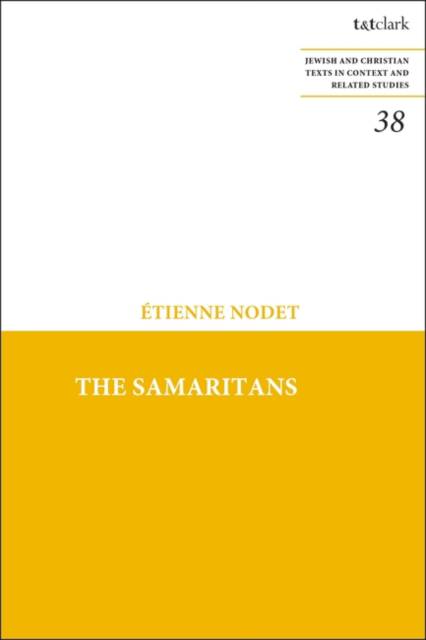
- Afhalen na 1 uur in een winkel met voorraad
- Gratis thuislevering in België vanaf € 30
- Ruim aanbod met 7 miljoen producten
- Afhalen na 1 uur in een winkel met voorraad
- Gratis thuislevering in België vanaf € 30
- Ruim aanbod met 7 miljoen producten
Zoeken
€ 203,95
+ 407 punten
Omschrijving
Etienne Nodet examines the Samaritans and their religion, using Jewish and Christian sources, including rabbinic literature and the latest archaeology. Nodet tells the story of the Samaritans and their religion, showing how they were faithful to a classical form of monotheism.
Nodet traces the Samaritan story from more recent to more ancient times. He begins by looking at the importance of the Samaritans in the time of Josephus and the New Testament, taking in the area formed by Galilee, Samaria, and Judea and recognizing how this corresponds approximately to Canaan at the time of Joshua, between the Jordan and the Mediterranean. He then examines the account of 2 Kings 17, which shows the Samaritans as descendants of the settlers sent by the Assyrians, who were initiated to a certain Yahwism after the fall of the kingdom of Israel (North) in 721 BC. Next Nodet looks at the time of the Maccabean crisis, when the Samaritans separated from the Jews, showing how before then there was a peaceful coexistence. Finally, Nodet turns to the Persian period, showing how after the return from exile there was a restoration of the Babylonian-derived form of religion, which the local Israelites (including the Samaritans) opposed. Nodet contends that, as such, the Samaritan religion, with its succession of high priests up to the present day, and is of 'immemorial permanence', linking to the earliest worship of YHWH in Israel.Specificaties
Betrokkenen
- Auteur(s):
- Uitgeverij:
Inhoud
- Aantal bladzijden:
- 174
- Taal:
- Engels
- Reeks:
- Reeksnummer:
- nr. 38
Eigenschappen
- Productcode (EAN):
- 9780567709660
- Verschijningsdatum:
- 7/09/2023
- Uitvoering:
- Hardcover
- Formaat:
- Genaaid
- Afmetingen:
- 156 mm x 234 mm
- Gewicht:
- 421 g

Alleen bij Standaard Boekhandel
+ 407 punten op je klantenkaart van Standaard Boekhandel
Beoordelingen
We publiceren alleen reviews die voldoen aan de voorwaarden voor reviews. Bekijk onze voorwaarden voor reviews.








